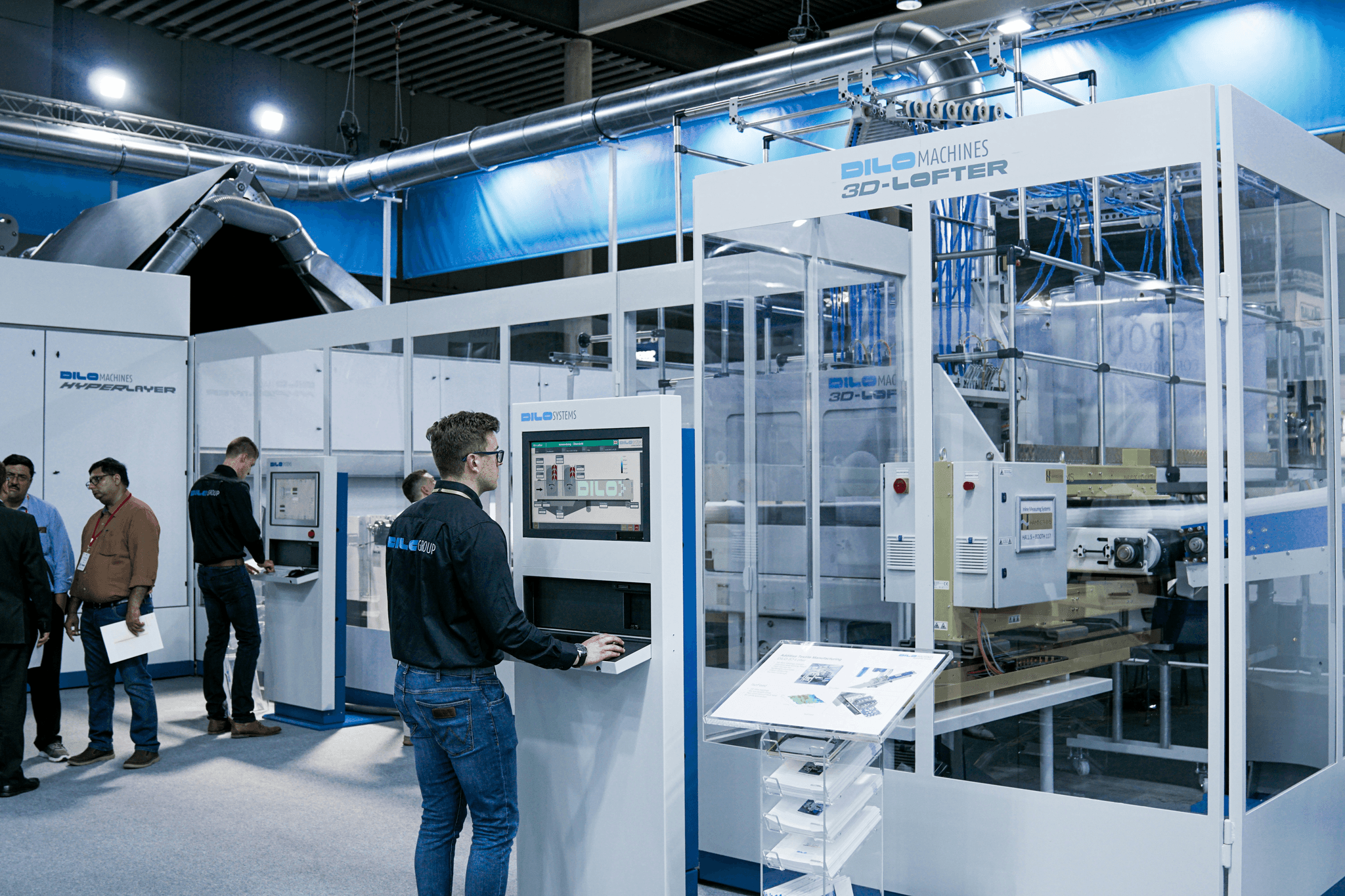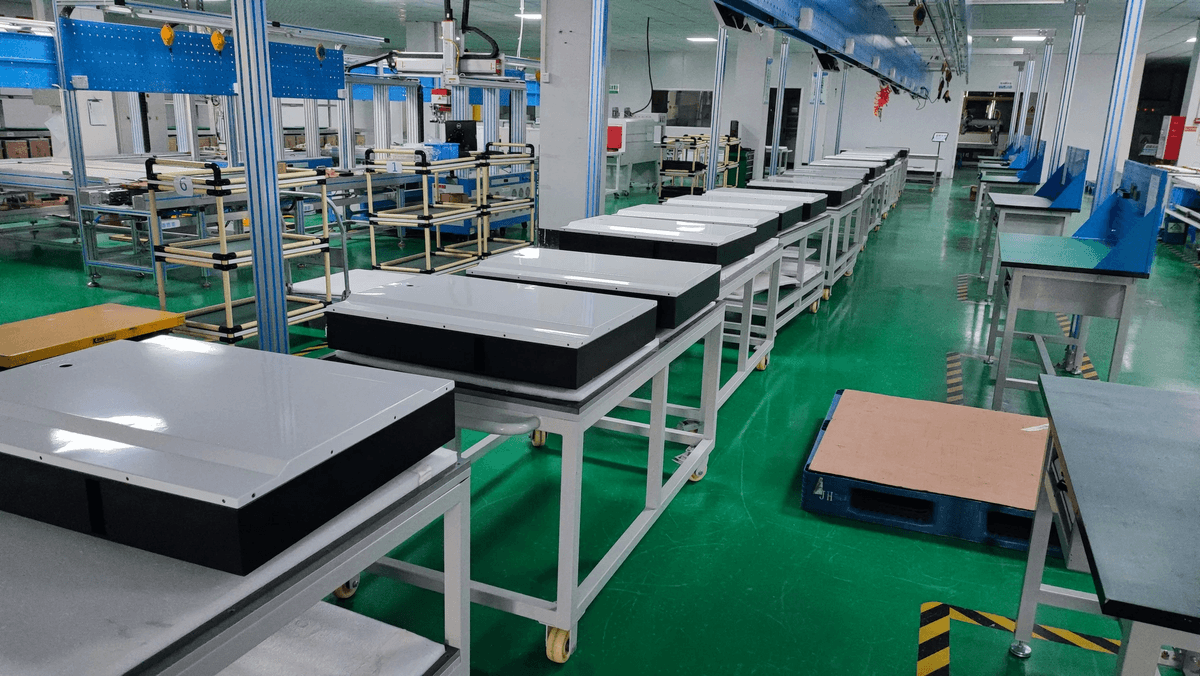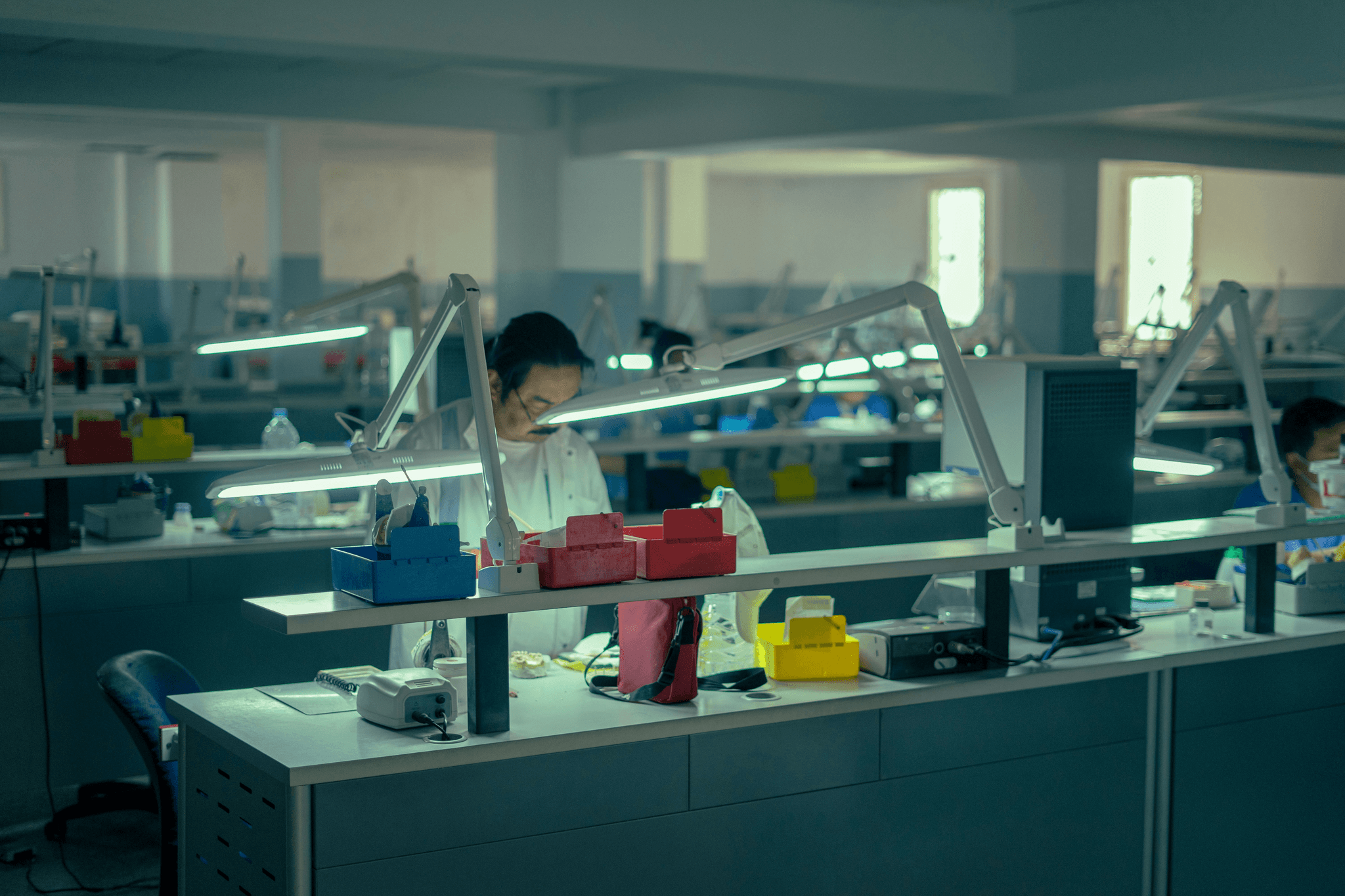Introduction

In the ever-evolving landscape of global trade, the importance of quality control in China cannot be overstated. With its position as a manufacturing powerhouse, ensuring that products meet international standards is crucial for businesses looking to thrive. Quality assurance inspection services play a pivotal role in safeguarding brand reputation and consumer trust.
Importance of Quality Control in China
Quality control is not just a buzzword; it's a necessity for businesses operating within and outside China's borders. The country's rapid industrial growth has led to an influx of products, making it vital for companies to invest in robust QC quality control measures. Without effective quality inspection processes, brands risk facing significant financial losses and damage to their reputation.
Understanding the Role of Inspections
Inspections serve as the first line of defense against subpar products entering the market. By employing reliable china inspection service providers, businesses can identify issues before they escalate into costly problems down the line. These QA inspections provide valuable insights into production processes, ensuring compliance with safety standards and customer expectations.
The Essence of Lab Testing
At the core of effective quality assurance lies lab testing—a critical component that validates product safety and performance. Through rigorous testing procedures, companies can ensure their offerings meet regulatory requirements while also satisfying consumer demands for high-quality goods. Ultimately, investing in comprehensive lab testing not only enhances product credibility but also fosters long-term customer loyalty.
The Need for Quality Control Services

In today's global marketplace, the need for robust quality control services cannot be overstated. Poor quality products can lead to significant financial losses, tarnished reputations, and even legal repercussions. This reality makes it imperative for businesses engaged in international trade to prioritize effective quality inspections and assurance measures.
Risks of Poor Quality in Global Trade
The risks associated with poor quality in global trade are multifaceted and can have far-reaching consequences. Subpar products not only result in customer dissatisfaction but also lead to increased return rates and potential damage claims. In extreme cases, companies may face regulatory penalties or be forced to recall defective items, which can severely impact their bottom line and brand image.
Moreover, the interconnected nature of global supply chains means that one link's failure can compromise the entire operation. If a supplier fails to meet quality standards during production, it could disrupt delivery schedules or lead to stock shortages. This is where a reliable china inspection service comes into play—acting as a safeguard against these risks by ensuring that products meet established standards before they reach consumers.
Benefits of Quality Control in Supply Chain
Implementing effective quality control measures offers numerous benefits throughout the supply chain process. First and foremost, it enhances product reliability, ensuring that customers receive items that meet their expectations consistently. By investing in thorough qa inspections and regular quality audits, businesses can foster stronger relationships with suppliers while minimizing production errors.
Additionally, maintaining high-quality standards can significantly improve operational efficiency by reducing waste associated with defective goods. With fewer returns and complaints arising from poor-quality products, companies can focus on innovation and growth rather than constantly addressing issues stemming from substandard offerings. Ultimately, a commitment to qc quality control not only boosts customer satisfaction but also strengthens brand loyalty over time.
The Role of China Inspection Pro
In navigating the complexities of international trade, partnering with a specialized provider like China Inspection Pro is crucial for success. This company offers comprehensive inspection services tailored specifically for businesses sourcing products from China—ensuring adherence to local regulations while meeting global standards for quality assurance inspection. Their expertise allows clients to mitigate risks associated with poor-quality goods effectively.
China Inspection Pro stands out by providing an array of services including pre-production inspections, during production checks, and final random inspections—all designed to enhance overall product integrity before shipment occurs. With their skilled team conducting thorough assessments at various stages of production, clients gain peace of mind knowing that their investments are protected against potential pitfalls related to product defects or non-compliance issues.
By leveraging the insights gained through collaboration with such experts in the field of qc quality control services, businesses can position themselves favorably within competitive markets while ensuring consistent delivery of high-quality products.
Navigating the China Inspection Service Landscape

When it comes to quality control in China, navigating the myriad of inspection services can feel like a daunting task. However, with a clearer understanding of what's available and how to select the right provider, businesses can effectively mitigate risks associated with poor quality. This section will guide you through popular inspection services, tips for choosing a provider, and insights into pricing and packages.
Overview of Popular Inspection Services
In the realm of quality control, several types of inspection services are prevalent in China. These include pre-production inspections, during production checks, and final random inspections—all crucial for ensuring that products meet specified standards before they reach consumers. Moreover, QA inspections often extend to factory audits and product testing in labs to ensure compliance with international regulations.
The most sought-after service is typically the pre-production inspection (PPI), which helps identify potential issues before manufacturing begins. During production inspections (DPI) focus on monitoring ongoing processes to catch problems early on—saving both time and money down the line. Finally, final random inspections (FRI) serve as a last line of defense against defective products slipping through the cracks.
How to Choose the Right Provider
Selecting a quality control provider is not just about picking any china inspection service; it’s about finding one that aligns with your specific needs and standards. Start by evaluating their certifications—are they recognized by relevant authorities? Additionally, consider their experience in your industry; providers well-versed in your sector will better understand your unique challenges.
Don’t underestimate customer reviews either; feedback from previous clients can provide insight into their reliability and effectiveness. Communication is key: ensure that your chosen provider is responsive and willing to adapt to your requirements as needed. Lastly, assess their range of services—do they offer comprehensive solutions like quality auditing alongside standard inspection services?
Insight into Pricing and Packages
Understanding pricing structures for china inspection services can help you make informed decisions without breaking the bank. Typically, costs vary based on factors such as service type (e.g., pre-production vs final random), product complexity, volume orders, and geographical location within China. It’s advisable to obtain quotes from multiple providers for comparison while being cautious about unusually low prices that may signal subpar service.
Many companies offer packaged deals that combine various QC services at discounted rates—ideal for businesses looking for comprehensive support throughout their supply chain process. Additionally, inquire about any hidden fees or extra charges related to travel or expedited services when reviewing packages offered by different providers. Ultimately, investing wisely in quality assurance inspection will pay dividends by reducing risks associated with poor-quality products.
Types of Quality Inspections Available

When it comes to quality control, understanding the different types of inspections available is crucial for ensuring your products meet the required standards. Each inspection stage plays a unique role in the quality assurance process, helping businesses mitigate risks and enhance their supply chain effectiveness. The right choice of quality inspection can make all the difference between success and failure in global trade.
Pre-Production Inspections Explained
Pre-production inspections are a proactive measure that can save companies from potential headaches down the line. This type of quality inspection occurs before manufacturing begins, allowing for an assessment of raw materials, production processes, and supplier capabilities. By engaging in pre-production inspections through reliable china inspection services, businesses can ensure that their products are built on a solid foundation of quality control.
During pre-production inspections, inspectors evaluate everything from material specifications to compliance with safety standards. This early intervention helps identify any issues before they escalate into costly problems during production or shipping. Ultimately, these QA inspections play a vital role in establishing trust with suppliers and ensuring that only high-quality products make it to market.
During Production Quality Checks
As the manufacturing process unfolds, during production quality checks become essential to maintaining product integrity and consistency. These inspections occur at various stages throughout production, allowing for real-time monitoring and adjustments as needed. By implementing effective QC quality control measures during production, companies can catch defects early on and prevent them from reaching consumers.
During production checks involve assessing workmanship, measuring tolerances, and verifying compliance with predefined specifications. This ongoing oversight not only enhances product reliability but also strengthens supplier relationships by fostering open communication about any issues that arise. Leveraging china inspection services for these checks ensures that manufacturers adhere to established standards while minimizing disruptions in the supply chain.
Final Random Inspection and its Importance
Final random inspection (FRI) serves as a critical checkpoint before products leave the factory floor and head towards consumers or retailers. This type of quality assurance inspection involves randomly selecting samples from finished goods to assess overall quality levels against established criteria. With FRI being one last line of defense against poor-quality products entering the market, it’s an indispensable step in any comprehensive QA strategy.
Conducting final random inspections allows companies to verify product functionality while ensuring packaging meets regulatory requirements—both essential factors for customer satisfaction and brand reputation. Moreover, this final check helps identify any lingering issues that may have gone unnoticed during earlier stages of production or pre-production assessments. By prioritizing FRI through reputable inspection services, businesses can confidently deliver high-quality products while safeguarding their brand image.
Importance of Quality Auditing
In the realm of quality control, auditing plays a pivotal role that often goes unnoticed. While inspections focus on evaluating products at various stages, quality auditing delves deeper into the processes and systems that govern production. This comprehensive approach not only ensures compliance with standards but also fosters continuous improvement within organizations.
What is Quality Auditing?
Quality auditing is a systematic examination of a company's quality management system to ensure it meets specified requirements and standards. This process involves assessing procedures, documentation, and practices to verify their effectiveness in achieving quality objectives. By conducting regular audits, businesses can identify areas for improvement and ensure adherence to regulations—essential for maintaining trust in the ever-competitive market.
Differences Between Inspection and Auditing
While both inspection and auditing are critical components of quality assurance inspection, they serve different purposes within the quality control framework. Inspections typically focus on evaluating specific products or processes at particular points in time—think of them as snapshots capturing performance during production runs. In contrast, audits provide a broader perspective by reviewing overall systems and processes over time, ensuring they align with industry standards and best practices.
How Auditing Enhances Supplier Relationships
Quality auditing goes beyond mere compliance; it enhances supplier relationships by fostering transparency and trust between parties involved in global trade. When suppliers know they are subject to regular audits through reliable china inspection service providers, they are motivated to maintain high-quality standards consistently. This ongoing dialogue encourages collaboration on improvements, ultimately leading to stronger partnerships built on shared goals for excellence in qc quality control.
Lab Testing: The Backbone of Quality Assurance

In the realm of quality control, lab testing stands out as a pivotal element that ensures consumer products meet safety and performance standards. Particularly in the context of global trade, where products travel across borders, rigorous lab testing becomes essential to maintain quality assurance. This process not only identifies potential defects but also helps companies comply with international regulations, ultimately safeguarding brand reputation.
Essential Tests for Consumer Products
Consumer products undergo a variety of essential tests to ensure they meet quality standards and regulations. These tests can include everything from chemical analysis to mechanical durability assessments, depending on the nature of the product. For instance, toys may require safety assessments for choking hazards, while electronics often undergo electrical safety inspections to prevent fire risks—this is where comprehensive quality inspection comes into play.
Additionally, food products are subjected to microbiological testing to detect harmful pathogens that could pose health risks. Each test serves a critical purpose in the broader framework of quality assurance inspection and helps mitigate risks associated with poor-quality goods entering the market. By investing in thorough qa inspections and adhering to stringent testing protocols, businesses can enhance their credibility and foster consumer trust.
The Lab Testing Process Uncovered
Understanding the lab testing process is crucial for companies looking to implement effective quality control measures. Typically, this process begins with sample collection from production batches followed by rigorous evaluation using advanced methodologies tailored for specific product types. Depending on the complexity of tests required—ranging from physical inspections to chemical analyses—the turnaround time can vary significantly.
Once samples are tested, results are compiled into detailed reports highlighting any discrepancies or compliance failures identified during inspections. This feedback loop is vital; it not only informs manufacturers about product efficacy but also guides them on necessary improvements or modifications before reaching consumers’ hands. Thus, leveraging a reliable china inspection service can streamline this entire process while ensuring adherence to international standards.
Importance of Certification and Compliance
Certification and compliance play an indispensable role in maintaining high-quality benchmarks within industries worldwide. Obtaining certifications from recognized bodies signifies that a product has passed rigorous qc quality control checks and meets specified standards—a badge that consumers often look for when making purchasing decisions. Furthermore, compliance with local regulations helps protect businesses from legal repercussions associated with non-compliance.
Additionally, certification enhances supplier relationships by fostering transparency and accountability throughout supply chains; when suppliers adhere strictly to established guidelines through regular quality auditing processes, trust builds over time between partners involved in global trade dynamics. In an increasingly competitive marketplace where consumers demand higher standards than ever before, prioritizing certification through robust lab testing becomes not just beneficial but essential for long-term success.
Conclusion

In the ever-evolving landscape of global trade, consistent quality assurance stands as a beacon of reliability for businesses. The benefits of implementing robust quality control measures are manifold; they not only enhance product integrity but also foster trust among consumers and partners alike. By prioritizing quality inspection and QA inspections, companies can ensure their products meet the highest standards, paving the way for long-term success.
The Benefits of Consistent Quality Assurance
Consistent quality assurance is essential in maintaining a competitive edge in today's marketplace. With reliable QC quality control processes in place, businesses can minimize defects and reduce costly recalls that can tarnish reputations. Additionally, effective inspection services help streamline production processes, leading to increased efficiency and customer satisfaction.
Choosing Quality Control to Mitigate Risks
In an age where poor product quality can lead to significant financial losses and brand damage, choosing the right quality control measures is crucial for risk mitigation. By investing in thorough quality audits and inspections, companies can identify potential issues before they escalate into major problems. This proactive approach not only safeguards investments but also enhances overall operational resilience.
Partnering with Experts for Global Success
Navigating the complexities of international trade requires expertise that many businesses may lack internally. Partnering with professionals specializing in china inspection service ensures access to top-tier knowledge about local regulations and industry standards. By collaborating with experts in quality assurance inspection, companies can confidently expand their global reach while ensuring compliance and excellence at every stage of production.
